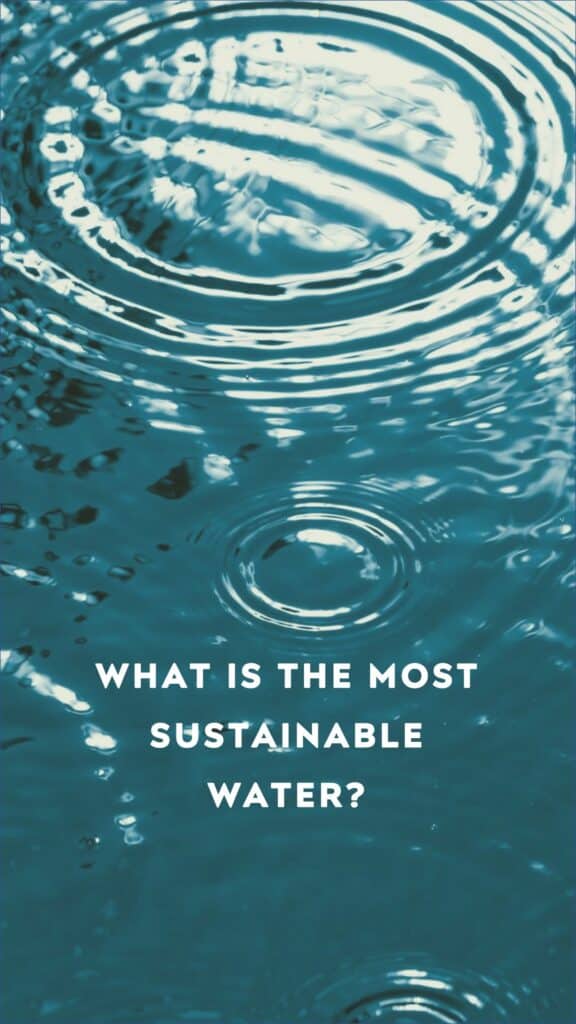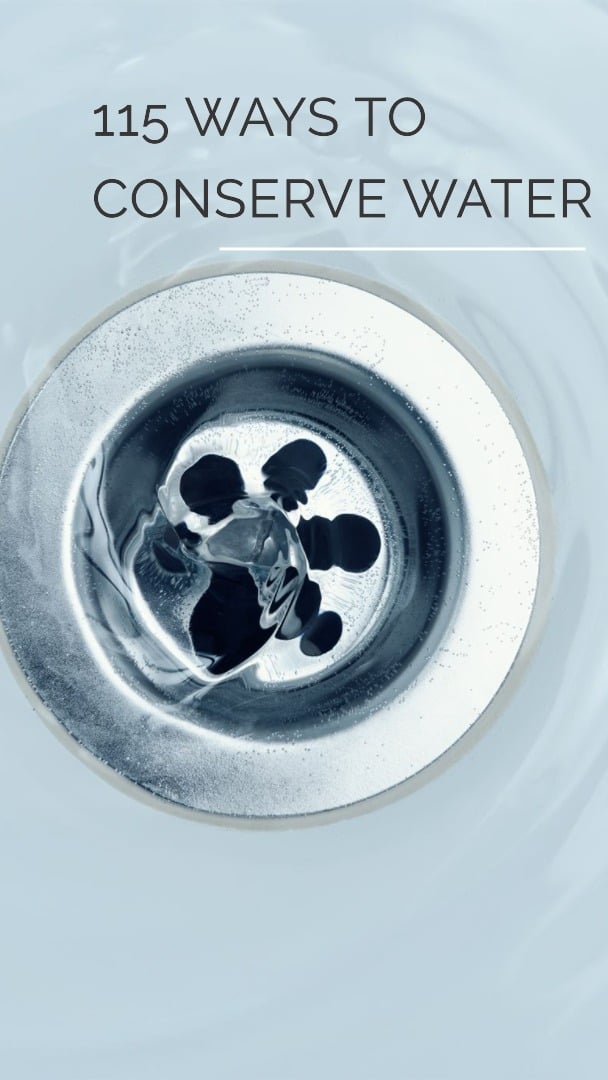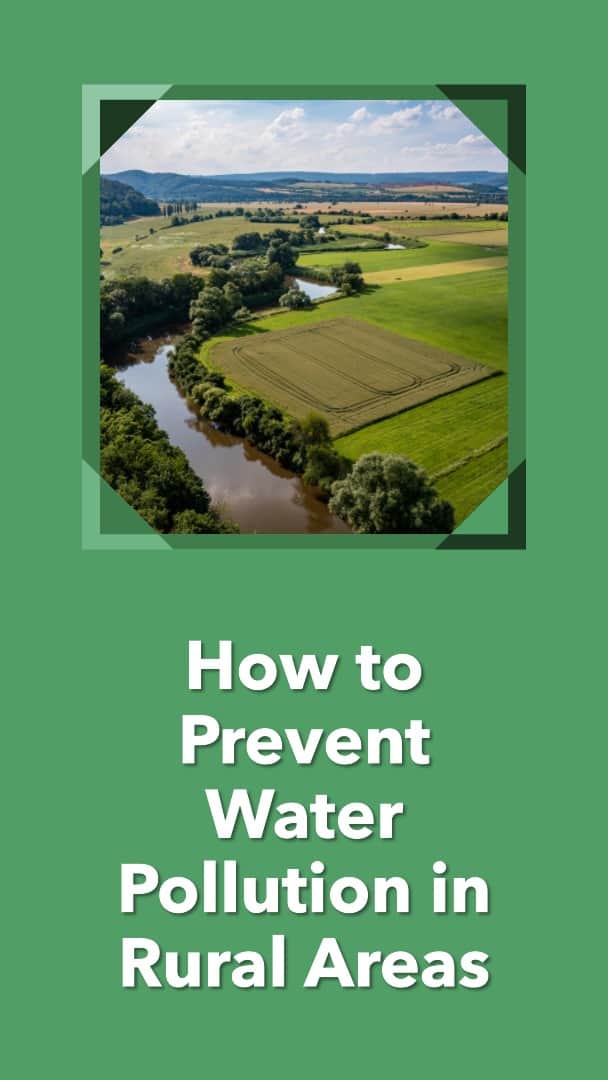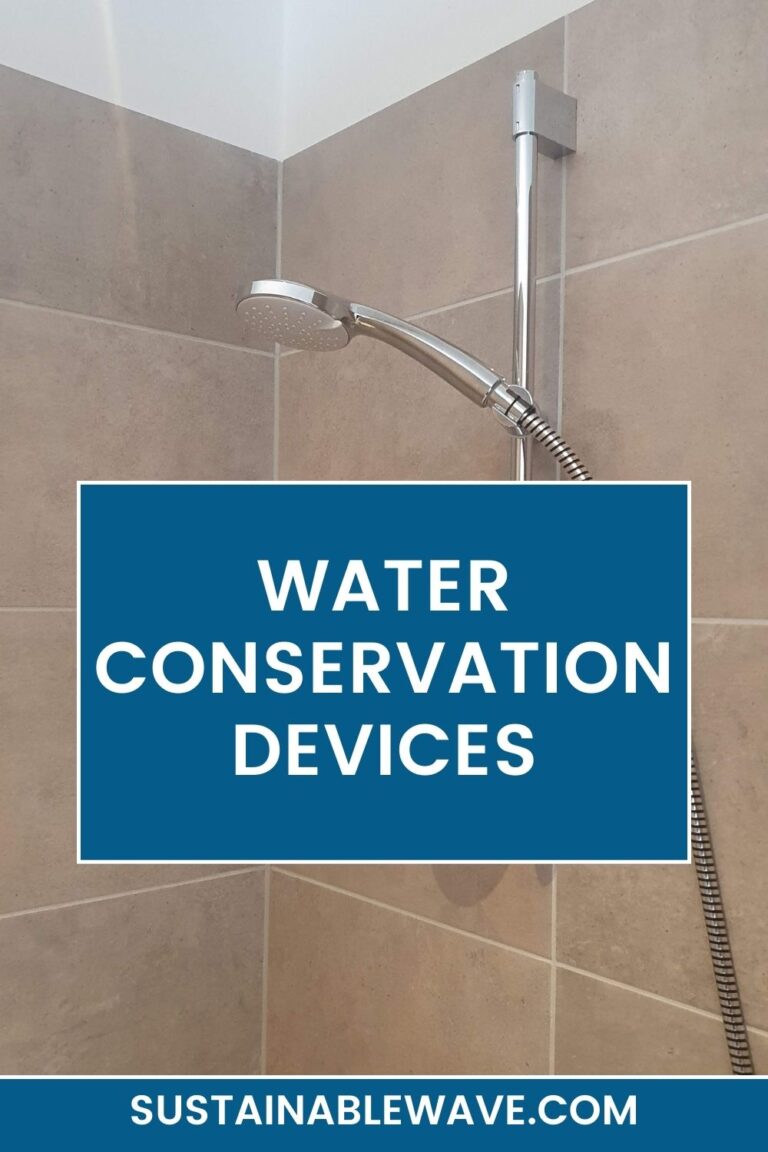Drinking water is a basic human need, and with the ever-increasing global population, sustainable access to safe and clean drinking water has become a pressing issue.
The most sustainable water typically involves a combination of naturally replenished sources such as rainwater and groundwater, along with innovative solutions like desalination and wastewater treatment, complemented by efficient use and recycling.
With this article, we’ll endeavor to answer the crucial question: What is the most sustainable water?
Understanding Sustainability in the Context of Water
The concept of sustainability has pervaded numerous facets of our lives, from the energy we use to the food we eat.
But when it comes to water, the essence of life, understanding sustainability becomes critically important.
Sustainability in the context of water is a complex, multifaceted issue, encompassing aspects of resource management, ecological balance, and social equity.
What Makes Water Sustainable?
Sustainable water resources are generally characterized by their renewable nature and responsible usage.
This could mean naturally replenished sources like rainwater, or efficient systems that prevent wastage and promote recycling.
Why Does Sustainable Water Matter?
Sustainable water matters because our survival hinges on it.
Water scarcity is a serious global issue, with an estimated 1 in 3 people globally lacking access to safe drinking water according to the World Health Organization.
The Three Pillars of Water Sustainability
Water sustainability rests upon three key pillars – economic, social, and environmental.
- Economic Sustainability: Ensuring water is managed and delivered in a cost-effective manner, providing everyone access to this vital resource at a fair price.
- Social Sustainability: Making sure all sections of society, regardless of socio-economic status, have equitable access to clean, safe water for their needs.
- Environmental Sustainability: Protecting and maintaining the health of ecosystems that depend on water, while ensuring the water source itself remains viable for future generations.
The Interplay of Water Sustainability and Climate Change
Climate change and water sustainability are intricately linked.
Changes in climate patterns can affect the availability and quality of water, threatening sustainability.
Droughts and floods, both intensified by climate change, can strain water resources and infrastructure, undermining our ability to sustainably manage water.
The Water-Energy Nexus: A Crucial Element of Water Sustainability
Water and energy are interdependent, forming a complex nexus.
Water is used in the production of nearly all forms of energy, and energy is required to extract, treat, and transport water.
This interdependence implies that sustainable water management must also consider energy usage and its environmental impact.
Balancing Immediate Needs with Long-Term Viability
One of the most challenging aspects of water sustainability is balancing the immediate water needs of today’s global population with the long-term viability of water resources.
This necessitates forward-thinking policies and technologies that prioritize efficiency, minimize waste, and promote the reuse and recycling of water.
Exploring the Most Sustainable Water Sources
Not all water sources are created equal, and some are decidedly more sustainable than others. Below, we will explore the contenders for the title of “most sustainable water”.
Rainwater Harvesting: A Gift from the Skies
Rainwater harvesting is an ancient practice, and it remains one of the most sustainable ways to secure water. It’s 100% renewable, local, and can be collected with minimal infrastructure.
However, the viability of rainwater harvesting depends on local climate conditions and may not be a reliable source in areas with low rainfall.
Groundwater: Tapping into the Earth’s Reservoir
Groundwater, extracted from wells, is another sustainable water source. It’s replenished naturally by rain and melting snow, making it a renewable resource.
However, the over-extraction of groundwater can lead to depletion and other environmental issues, such as land subsidence.
It’s crucial to manage groundwater use to ensure its sustainability.
Desalination: Turning Sea into Sip
Desalination, the process of removing salt and impurities from seawater, is a potential sustainable water source, especially for coastal regions.
However, traditional desalination methods are energy-intensive, which can impact their sustainability.
Recent innovations, though, are promising more energy-efficient desalination technologies.
Surface Water: Rivers, Lakes, and Reservoirs
Surface water, which includes rivers, lakes, and reservoirs, represents a significant portion of the world’s freshwater resources.
These sources are replenished naturally through rainfall and melting snow, making them renewable.
However, their sustainability depends on careful management to prevent overuse and contamination.
Snowmelt: Nature’s Fresh Water Reservoir
In many regions, particularly those with cold winters, snowmelt serves as a valuable source of fresh water.
As the snow melts in spring, it replenishes rivers and groundwater, providing a seasonal boost to water supplies.
However, climate change is disrupting this natural cycle, posing challenges for the sustainability of snowmelt as a water source.
Atmospheric Water Generation: Harvesting Water from Thin Air
Atmospheric water generation, a process that extracts water from humid ambient air, has emerged as a promising technology for sustainable water supply.
It can be particularly useful in areas where conventional sources are inadequate or non-existent.
While this technology is still developing and may require significant energy inputs, advancements are making it more efficient, pushing it closer to being a truly sustainable source.
Wastewater Treatment: Turning Waste into Wealth
Perhaps one of the most underrated sources of sustainable water is treated wastewater.
While the idea of using treated wastewater may make some squeamish, the fact is that with the right treatment processes, wastewater can be purified to meet the safety standards for various uses, including irrigation and industrial cooling.
This not only conserves freshwater resources but also plays a part in reducing the pollution load on our water bodies.
Sustainable Water Usage and Management
The sustainability of water doesn’t end with its source—it’s also about how we use and manage it.
Water Efficiency: Getting More from Less
Water efficiency involves using less water to achieve the same outcome, whether that’s in our homes, industries, or agriculture.
This could involve low-flow fixtures, efficient irrigation systems, or water reuse strategies.
Water Recycling: A Second Chance at Life
Water recycling is the process of treating wastewater so it can be reused, either for non-drinking purposes or, in some cases, to replenish drinking water supplies.
This significantly reduces the demand for freshwater resources.
The Verdict: What Is the Most Sustainable Water?
Answering the question “What is the most sustainable water?” is complex. It largely depends on where you are in the world and what resources are available to you.
However, the key to sustainability lies not just in identifying the right sources, but also in how we manage and use our water.
As we’ve seen, sustainability and water are intertwined, and the need for sustainable water is more pressing than ever. Let’s each play our part in protecting and preserving this life-giving resource for generations to come.
Frequently Asked Questions (FAQs)
- Why is sustainable water important? Sustainable water is crucial because it ensures the long-term availability of this vital resource without compromising the ability of future generations to meet their own water needs.
- What role does recycling play in sustainable water? Recycling plays a significant role in sustainable water by treating and reusing wastewater, thereby reducing the demand for freshwater resources.
- Is desalinated water sustainable? Desalinated water can be a sustainable source, especially for coastal regions. However, its sustainability depends on the energy efficiency of the desalination process.
- Is bottled water sustainable? Bottled water is generally not considered sustainable due to the environmental impact of plastic waste and the energy required for bottling and transportation.
- What can I do to promote sustainable water? You can promote sustainable water by implementing water-efficient practices in your home, advocating for water recycling initiatives, and supporting policies that protect water resources.

Sources
- World Health Organization (WHO)
- United States Environmental Protection Agency (EPA)
- The Water Project
I’m Thomas, the owner of SustainableWave. Passionately promoting a sustainable planet. With experience in various eco-roles, I’ll share green tips, sustainability hacks, and personal eco-journeys on my blog.






